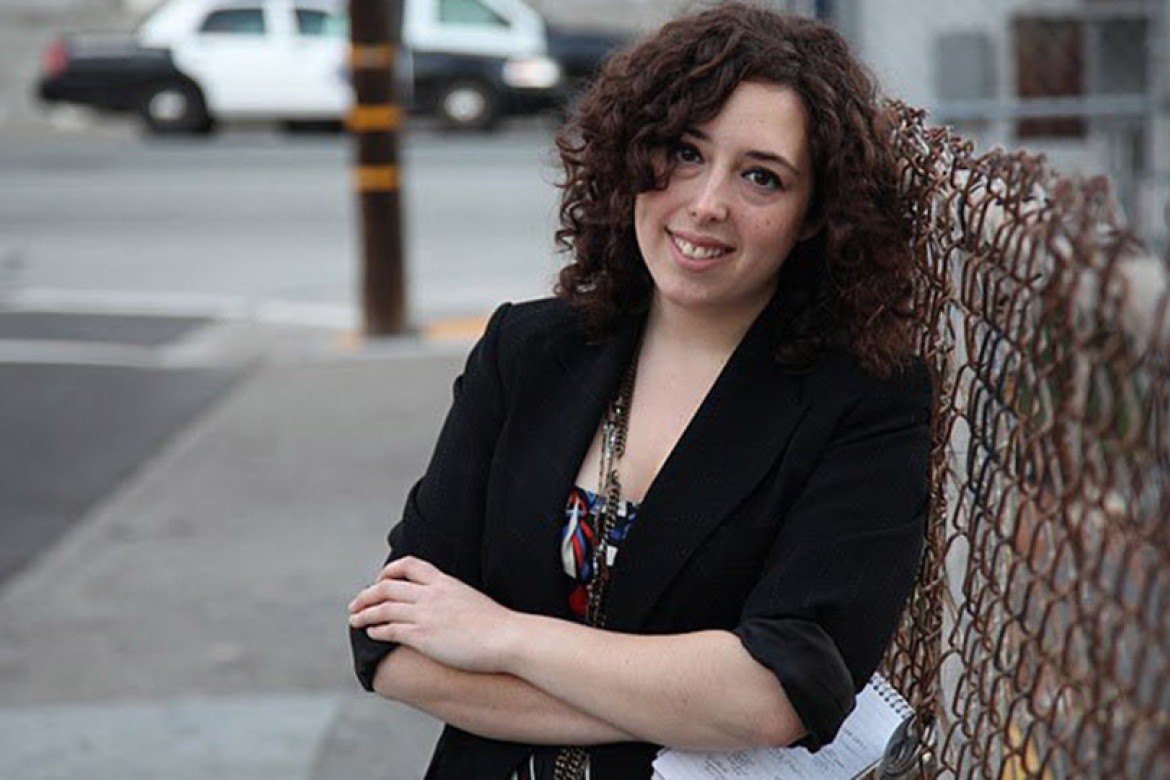Reporter’s work strives to boost social justice.

Shoshana Walter ’07, winner of a major journalism award, revels in the challenging work of reporting in-depth crime stories that can have significant social impact.
Shoshana Walter ’07 has worked some of journalism’s toughest beats, covering shootings, drug- and gang-related crimes, domestic violence, homicides, and more as a criminal-justice reporter.
Walter’s work has won the kind of accolades—and had the sort of impact—that even more senior colleagues might envy. A series of articles about armed security guards recently won Walter and cowriter Ryan Gabrielson the coveted Livingston Award for Excellence in National Reporting.
“The Livingston is a huge honor; it’s essentially a Pulitzer for the under-35 set,” says Catherine S. Manegold, a Pulitzer Prize winner who teaches journalism at Mount Holyoke.
Walter’s award-winning “Hired Guns” articles exposed “the haphazard system of lax regulation, weak screening standards, and little to no training for armed security guards. Walter and Gabrielson compiled data on every state and uncovered cases where violent felons, the mentally ill, and former police officers with civil rights violations were able to obtain jobs as armed security guards,” according to an article on the Livingston Awards website.
Walter was halfway to her degree at Mount Holyoke before she considered journalism as a possible career. A women’s studies course taught by Senior Lecturer in Gender Studies Martha Ackmann—herself an accomplished journalist —changed that. A newspaper internship and a journalism-focused independent study with Ackmann led Walter to realize journalism matched both her skills and her values.
”I knew I wanted to be a writer, and I believed strongly in social justice,“ Walter says. ”I believe that the way you write a story has the ability to change how people view society.”
The “Hired Guns” series definitely made an impact. A bill is now moving through the California legislature that would require mental-health evaluations for armed security guards, and people in several other states contacted Walter for more information on regulating guards in their jurisdictions. Most tellingly, perhaps, a major security industry organization—while not happy about Walter’s exposé of their industry—is now supporting better vetting practices.
Walter says Mount Holyoke prepared her better than a dedicated journalism program might have by teaching her critical-thinking skills.
“I took classes in sociology, women’s studies, African American history, and Asian American history, and learned to think critically about race, class, and gender” she says. “That helped me in my approach to reporting on crime.”
During her independent study with Ackmann, Walter dug tenaciously into a story about women who worked at a local hospice shop, “adding nuance, posing deeper questions, and getting more beneath the surface” with each rewrite, Ackmann recalls.
“I loved working with Shoshana because she was relentless in her pursuit of excellence,” she says. “Shoshana rolled up her sleeves (with great zeal) every single day, and deeply understood that journalism is a powerful tool for portraying and impacting women’s lives.“
Walter’s first postcollege job was as a crime reporter at the Ledger In Lakeland, Florida. The stories were gritty and the pace was quick—she had to turn around two or three stories daily. Life as a crime reporter made her realize that “a lot of the problems facing society come to a head in the form of 911 calls."
Walter’s current position as a reporter for the Center for Investigative Journalism (CIR) retains the grit but is a world away from the Ledger's rush-rush journalism.
“That experience made me realize how important taking time for more in-depth stories is,” she says. “For Reveal [CIR's national radio show and podcast] that’s all I do, and I’m grateful to have an opportunity that few journalists have.”
Make no mistake, though, this is no cushy assignment. Walter’s next long-term project: investigating sex and labor trafficking and the sexual exploitation of minors.
Write your own future. Find out how.